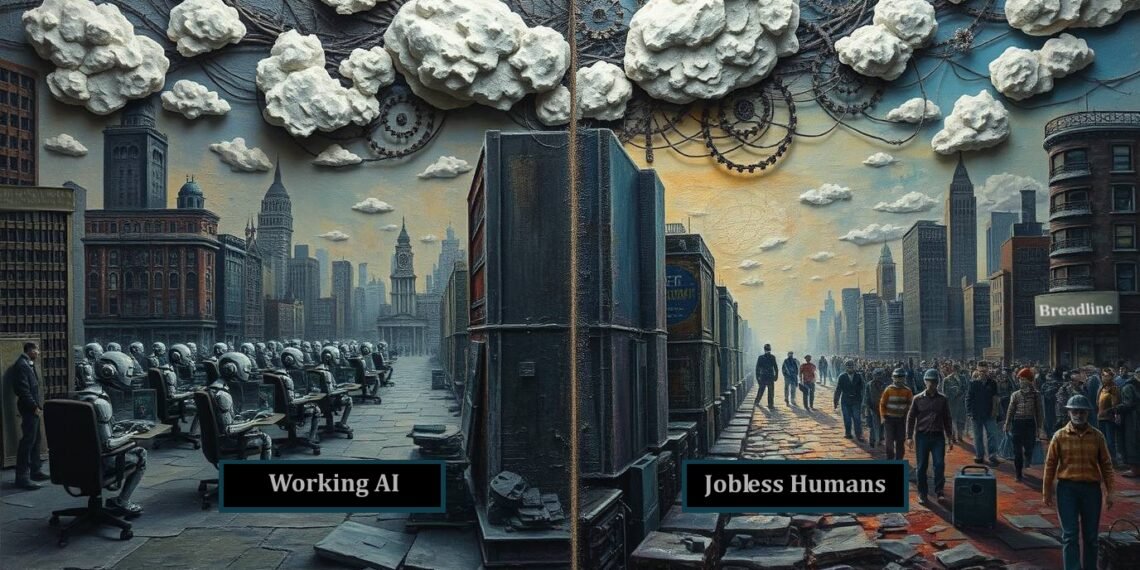In 2025, major technology firms have cut over 77,000 jobs due to the automation of traditional roles by artificial intelligence, and while there are promises of new job creation and retraining programs, these predictions feel more theoretical than actual. The transformation brought by artificial intelligence in the job market raises uncertain prospects. As capabilities in machine learning and generative language models expand, concerns emerge regarding potential long-term impacts, with some fearing mass unemployment while others remain optimistic about gains in productivity and creative opportunities.
Layoffs have been reported from companies like Microsoft and IBM, targeting roles susceptible to automation, as reflected by the Trueup Technology Layoff Tracker, which indicates significant job losses this year. Although some anticipate new roles will arise, evidence of substantial job creation remains scant. The World Economic Forum indicates that while growth in certain human labor industries continues amidst AI advancements, effective responses to employee displacement are lacking, particularly regarding entry-level positions.
As changes occur, adapting to AI’s effects on the job market is crucial. Individuals are encouraged to cultivate skills that increase their value in a technology-driven world, focusing on human-centric attributes. Companies should utilize AI as a complement to human labor rather than a replacement, and governments need to facilitate support for displaced workers, guiding them towards roles that are meaningful and centered on human abilities.
The ainewsarticles.com article you just read is a brief synopsis; the original article can be found here: Read the Full Article…


